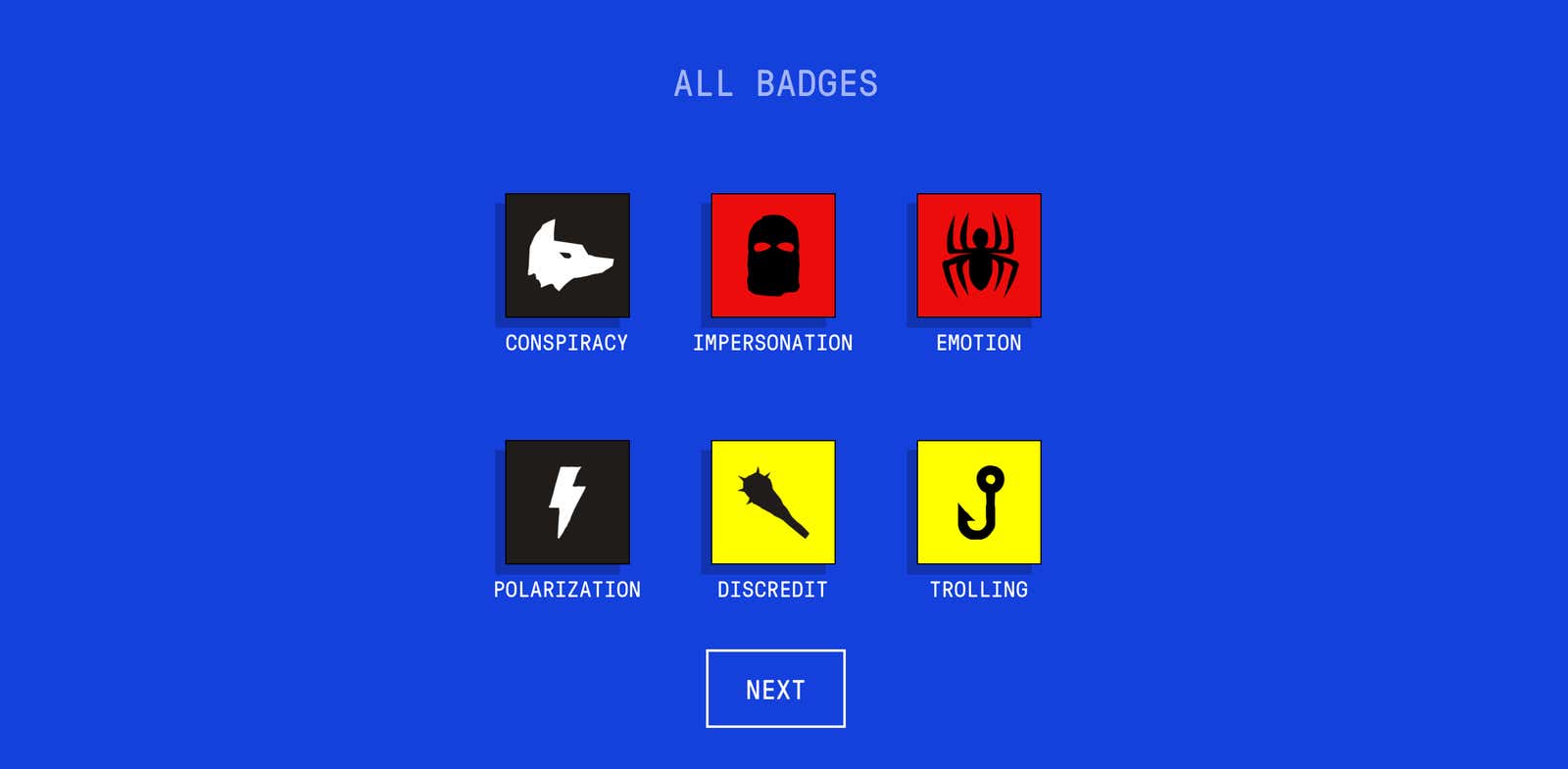Spot Fake News With the Bad News Web Game

Last year we told you about Bad News , a web game that teaches you misinformation by putting you in the role of a trolling media mogul. Now the creators of the game have proof that the game works as a “vaccine” against misinformation, and they have created a simplified version for children.
I went through Bad News for the first time today. It’s simple – you can just choose between multiple options at each stage and it only takes you a few minutes to complete the entire game – but it’s based on a very clever premise. Instead of being told how to define disinformation, you use strategies to create it.
I started by choosing a title for my media outlet – “Honest Truth on the Internet.” The game then guided me through false appeals to emotion, plausible conspiracy theories, and attacks on people who tried to refute me. At the beginning and at the end of the game, you have the opportunity to complete a short quiz, assessing the reliability of several game tweets.
I was skeptical at first: many of these tweets and headlines could be true; how was I supposed to know? Towards the end, I chose “unreliable” for most of them, as they clearly used some of the strategies I used in the game: impersonate, appeal to emotion, polarize the problem, and more. So I guess you could say it worked.
According to a study published this week by the creators of the game, this is how most people reacted. In-game tweets designed to mimic real-world news had the same credibility ratings whether players saw them before or after playing, but those intended to be manipulated received lower ratings after people played. In other words, the game seems to work.
The game is now available in more languages, and there is also a children’s version for ages eight to ten. I asked my nine-year-old to play, and the game put him in charge of the fictional school’s website. At the insistence of the game, he spread the lie that the school was going to bring puppies to class and fanned the rumor that video games would be banned. He told me later that he was not surprised that people could lie, but he never thought about it in terms of manipulating a crowd of people for fun and profit. I hope he uses this knowledge for good, not evil.